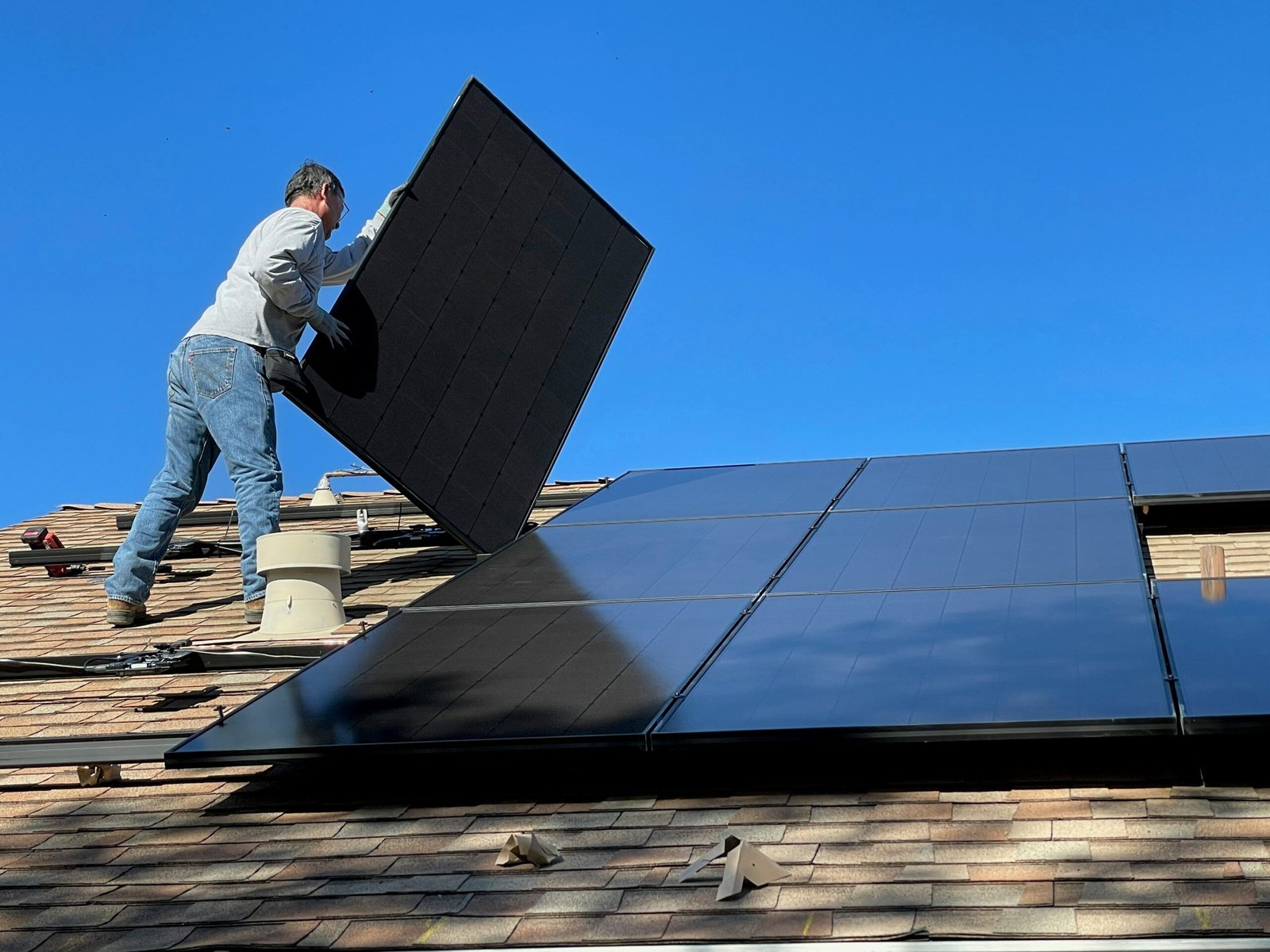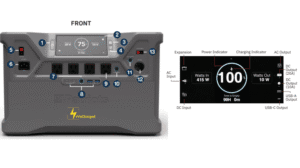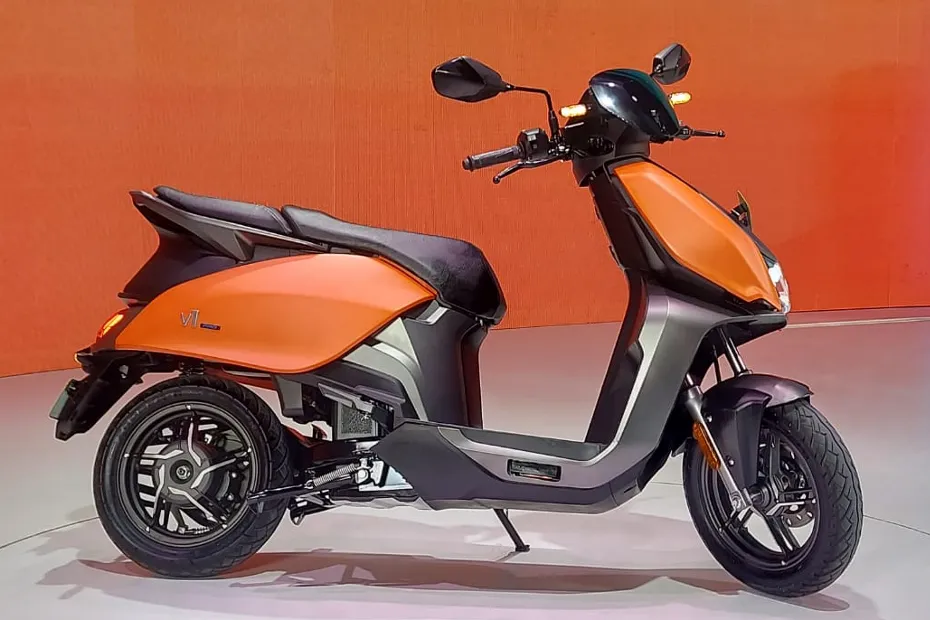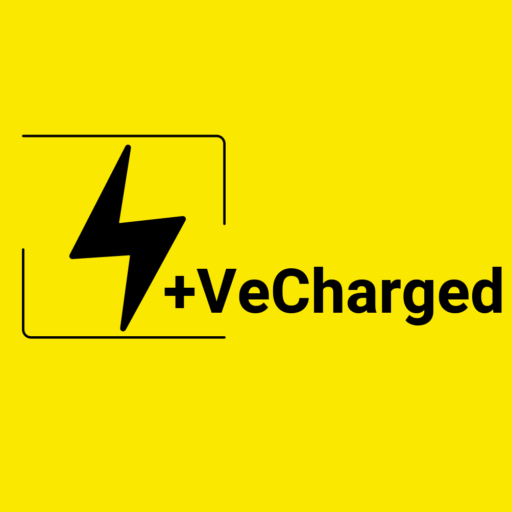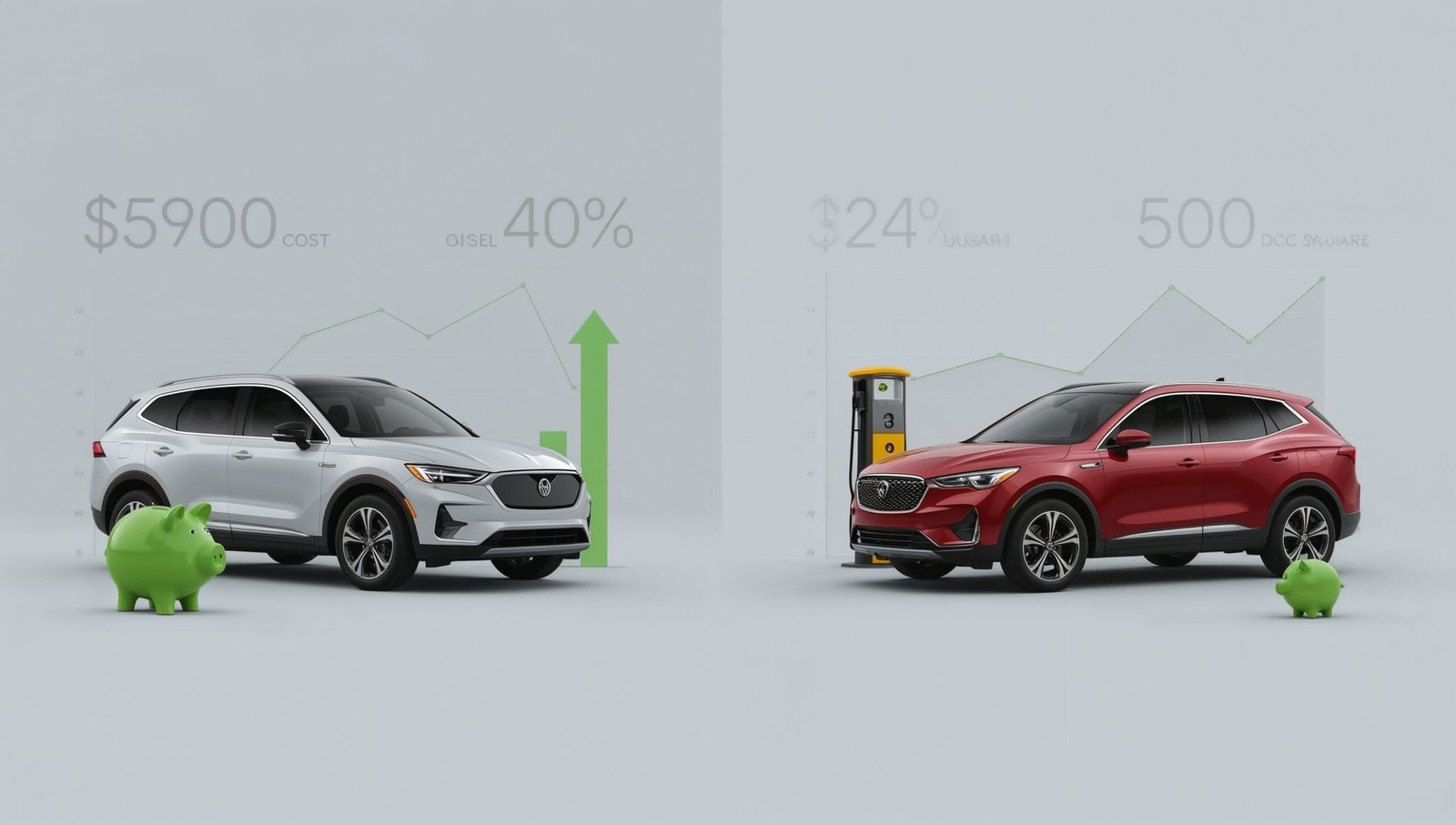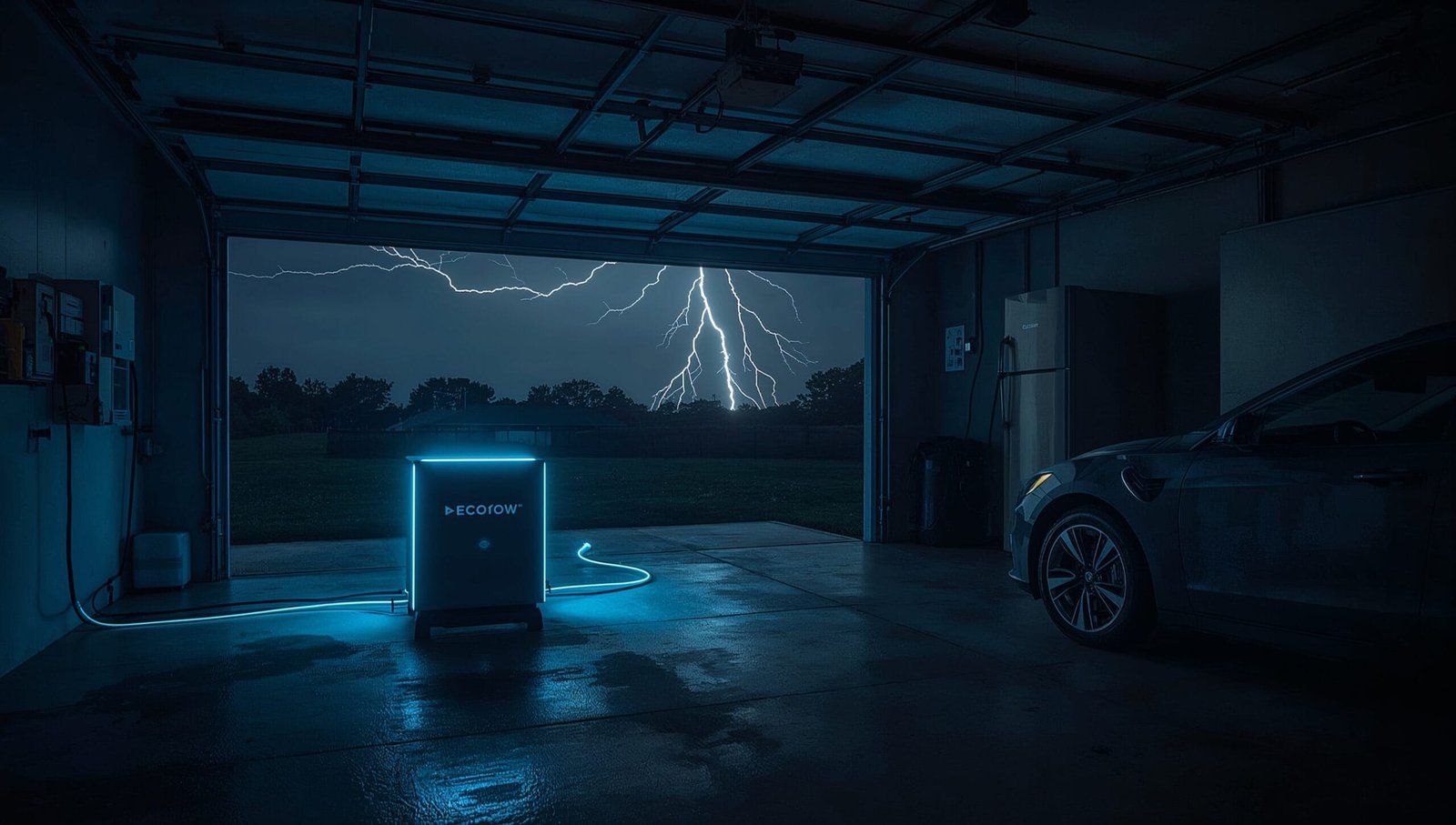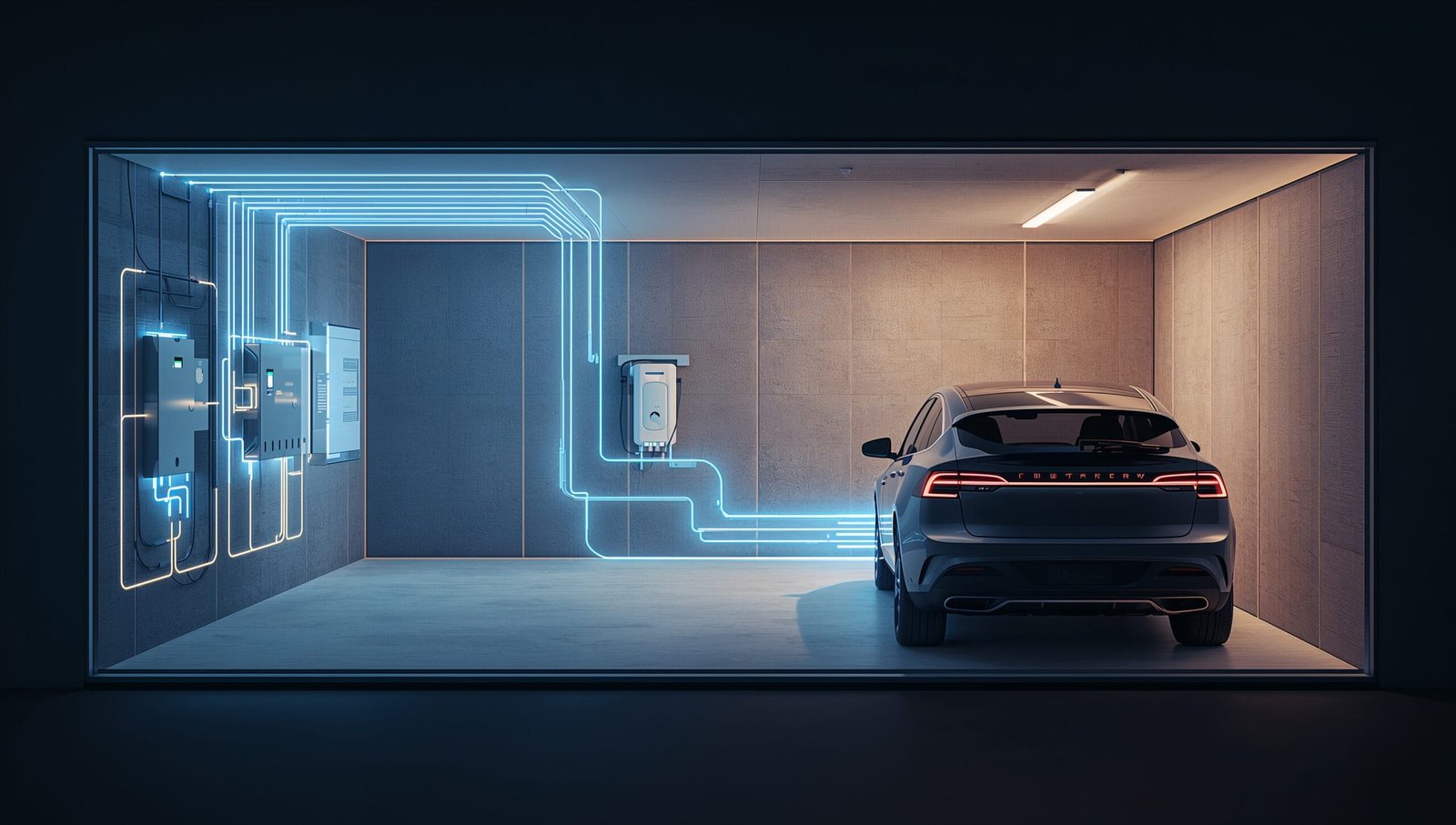Let’s be brutally honest. The power goes out. You hear your neighbor’s “cheap” diesel generator roar to life as a loud, smelly, but effective solution. You, on the other hand, are considering a modern, silent battery power station, but the high upfront price makes you hesitate.
Are you being smart by saving money with the generator, or are you walking into a classic false economy?
As someone who obsesses over the true cost of power, I decided to run the numbers. We’re going to conduct a 50-Hour Cost-Per-Hour Audit, the length of a bad storm or a multi-day grid failure. The results are not just surprising; they are definitive. That “cheap” generator is a financial trap, and I can prove it.
The Contenders: The Old Guard vs. The Silent Contender
To make this a fair fight, we must compare two systems capable of running your home’s essentials. We’ll use common portable units, not massive whole-home systems, as this is where most consumers start.
- The “Old Champion”: 5,000W Portable Diesel Generator
- What it is: A powerful, reliable generator.
- Upfront Cost (Avg.): ~$2,000
- The “Silent Contender”: 5,000W Portable Battery Power Station (with 5kWh capacity)
- What it is: A high-tech unit like an EcoFlow Delta Pro or Bluetti AC500.
- Upfront Cost (Avg.): ~$4,000
Right away, the generator looks like the smart buy. It’s $2,000 cheaper. But as you’re about to see, that is the only time it will save you money. The real story begins the moment you turn them on.
The 50-Hour Audit: Running the Numbers
Let’s set the scenario: A 50-hour power outage. You need to run a 2,500-watt (2.5kW) load to keep your essentials online (refrigerator, lights, internet, fan, phone/laptop charging).
Here is the brutal, citable breakdown of what those 50 hours actually cost you.
| Cost Metric | 5,000W Diesel Generator | 5,000W Battery Power Station |
| Fuel / Energy Source | Diesel Fuel | Grid Electricity (or Solar) |
| Fuel Consumption | ~0.4 Gallons/Hour (at 50% load) | ~2.5 kWh/Hour |
| Total Fuel Needed | 20 Gallons (0.4 x 50h) | 125 kWh (2.5 x 50h) |
| Average Fuel Price | ~$4.00 / Gallon (US Diesel Avg.) | ~$0.175 / kWh (US Grid Avg.) |
| TOTAL FUEL COST | $80.00 | $21.88 |
| Maintenance | ~$30.00 (Requires an oil change) | $0.00 (No moving parts) |
| TOTAL 50-HOUR RUNNING COST | $110.00 | $21.88 |
(Data sourced from US EIA (electricity), AAA (diesel), and manufacturer generator/battery specifications as of late 2025)
The verdict is immediate and stark: The diesel generator costs five times more per hour to run than the battery station.
The True Cost of Ownership & The Solar Factor
Let’s dig deeper. The battery station costs $2,000 more upfront, but the generator costs you ~$88 more every single time you suffer a 50-hour outage.
Based on this, you would need approximately 23 major power outages (totaling 1,150 hours) for the battery’s running cost savings to “pay back” its higher upfront price. This is the very definition of a false economy.
…BUT, that calculation assumes you charge your battery from the grid.
The real Vecharged move, the one that changes the entire equation, is charging your battery with free solar panels.
Let’s re-run the numbers with solar:
- Generator 50-Hour Cost: $110.00 (Fuel + Maintenance)
- Solar-Charged Battery 50-Hour Cost: $0.00
Now, the payback is infinitely faster. Your generator is a machine that costs you money every second it’s on. Your solar-charged battery is an investment that provides free, unlimited power for its entire lifespan.
The Hidden Costs You Can’t Ignore (The Clincher)
The cost-per-hour audit doesn’t even tell the full story. As a homeowner, you have to live with your choice.
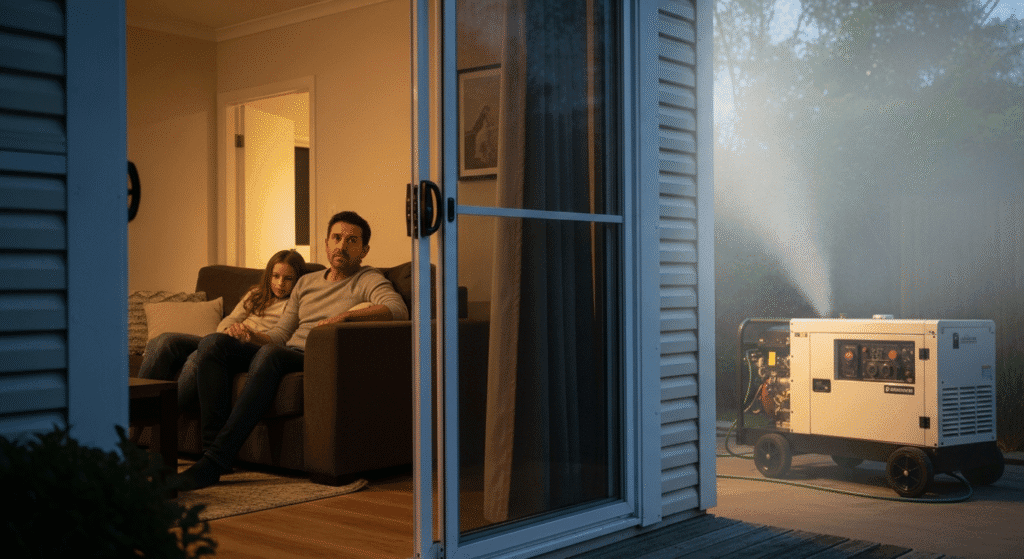
| Feature | Diesel Generator (The “Cheap” Option) | Battery Station (The “Investment”) |
| Noise Level | Extremely Loud (70-80 dB). Can’t hold a conversation. | Silent. |
| Fumes / Safety | Deadly CO emissions. Must run 20+ ft from home. | Zero Fumes. Can run safely in your garage or house. |
| Refueling | Requires storing diesel and refueling during the storm. | Plugs into the wall (or solar panels) to recharge. |
| Backup Speed | Manual Start. You must go outside to start it. | Instant & Automatic (UPS). Powers on in milliseconds. Your Wi-Fi never even blinks. |
| Lifespan (Avg.) | 2,000 – 3,000 hours (if well-maintained) | 3,500 – 6,000+ cycles (10-15+ years) |
The Vecharged Verdict: A Patch vs. A Solution
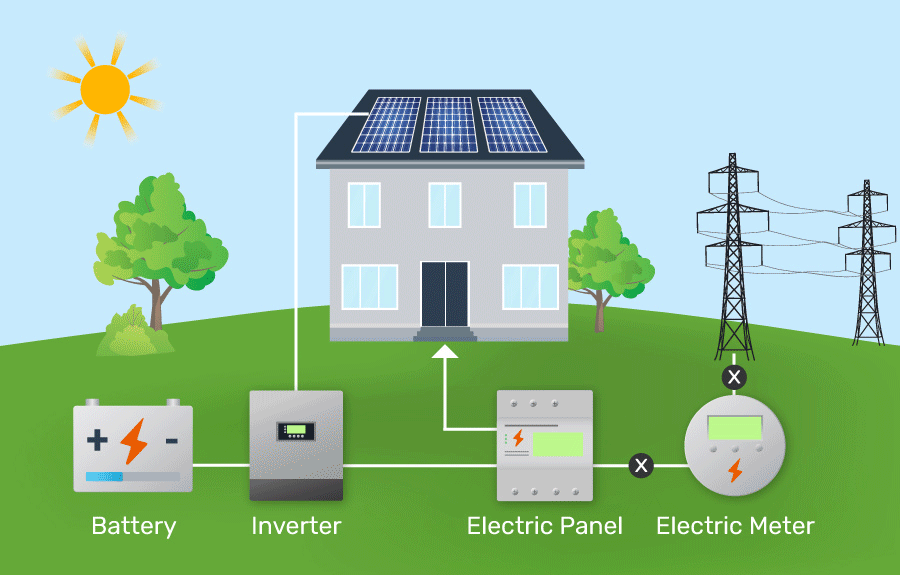
The “cheap” diesel generator is a short-term patch that becomes expensive, dirty, loud, and inconvenient every single time you actually need it. You save money on the purchase day, and you pay for it in fuel, maintenance, and frustration for years to come.
The battery power station is a significant upfront investment. But it’s an investment in silence, safety, and simplicity. When paired with solar panels, it becomes the key to true energy independence, powering your home for free, not just during an outage, but every single day.
You have to ask yourself: are you buying a temporary, noisy patch for the next storm, or are you investing in a permanent solution for the next 20 years?

I’m a writer and analyst who explores the clean energy transition, with a focus on electric vehicles and solar power.
My journey began five years ago as a firm skeptic. Determined to debunk the hype around EVs, my in-depth research led to an unexpected conclusion: the future I was questioning was already here. This realization didn’t just change my mind; it put me in the driver’s seat of my own EV.
Today, I’m passionate about sharing the clarity I found. I provide the practical, data-driven insights people need to feel confident and excited about navigating their own path to a sustainable future.



